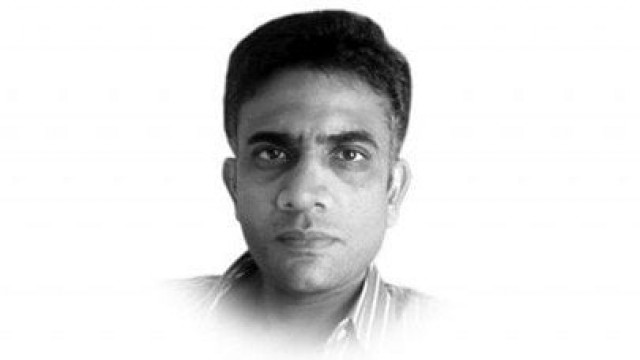Life after Ajmal Kasab

The only country both India and Pakistan seek to convince is America and recent administrations in Washington have acknowledged the presence and the danger of militias. Having convinced its audience and now its own judiciary, India will have to do something. The matter can no longer remain in the realm of accusation because we are past that now with the verdict of conviction. So India can either choose to continue to refuse talking to Pakistan or it can engage in dialogue again.
The first course is the one that angers Pakistan and, if for no other reason, many in India would like to stick to it. As strategy it doesn’t require much, other than holding up the evidence in front of an already convinced world and reprising the role of victim. The advantage of this method is that old positions can be held because there is no serious pressure, despite what is often said, to change them.
‘We will talk if there is action on dismantling the groups’ is the line that is given to America and it seems logical. America is anxious that the nations talk, because its interests in Afghanistan are jeopardised by a distracted Pakistan, but it has limited leverage over India. And yet, if there has been any benefit to India from holding this position it hasn’t been articulated by anyone. And there is one clear disadvantage, which we shall see later.
The other option India has is to engage with the Zardari-Gilani government and hope for further movement on the Mumbai attacks case, whose backers Pakistan has arrested. If India does not move on this legally, joining in the prosecution, the men stand to be released and continue their work. That surely cannot be what India wants because its citizens are endangered by these men. In return for talks on terrorism, India must talk to Pakistan about Kashmir and the Indus waters treaty.
Pakistan believes India is violating this treaty and though there is an independent mechanism to see if this is true, the lack of communication between the nations means that rumour and speculation passes for fact. There appears to be more benefit to India, as there is to Pakistan, in following the second course. In following the first there seems to be benefit only to India’s foreign office, which doesn’t have to work when there are no talks.
But India is paying the price for this festering sore, which brings us to the disadvantage in not talking to Pakistan: the militias are actually succeeding in one way. If the intention of these groups was to ultimately deepen the divide between India’s Hindus and Muslims, there is evidence to show that they have achieved this. This week the police announced arrests of Hindus in two 2007 bomb blasts, at the Ajmer dargah and a mosque in Hyderabad.
The group seeks revenge for the attacks on Indians by jihadi groups, but for some reason it holds all Indian Muslims accountable for them. This will give heart to would-be terrorists because the damage of their acts is amplified by the reaction. After the defeat of the BJP, India has going through a period of internal stability on this front. It will benefit from now cautiously opening talks with Pakistan.



















COMMENTS
Comments are moderated and generally will be posted if they are on-topic and not abusive.
For more information, please see our Comments FAQ